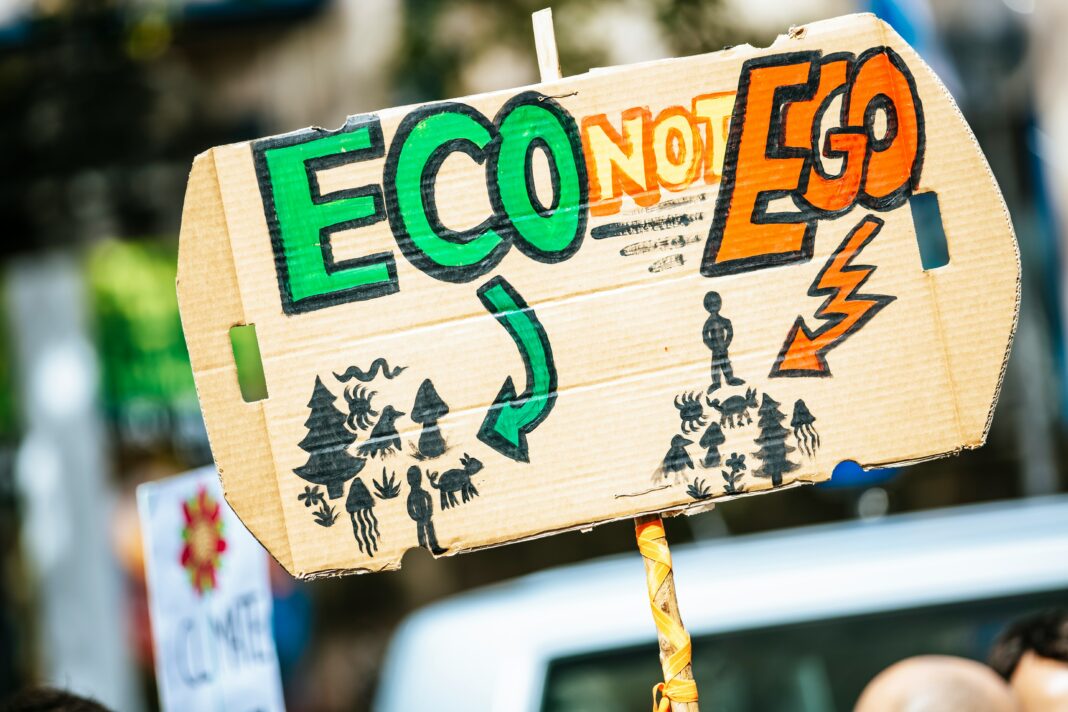Last week, the largest city, Dubai, was brought to a halt, with one of the worst rain events in decades flooding streets, homes, and highways. The heavy rains also halted air traffic, damaged buildings and streets — and left climate experts and common citizens asking whether one of the world’s hottest and driest cities should be better prepared for extreme storms.
In March 2021, the coast of New South Wales (NSW), Australia, was hit by a disastrous flood. Sydney received 40 percent of its annual rainfall in that time period, flooding numerous households and displacing large masses. Around 29,000 damage claims were put forward by different insurance companies, owing to the extent of damage this vicious flooding had caused. Such natural disaster unveils the social and economic distress mankind is indulged in.
Earth is the only planet mankind can inhabit because nature has provided it with ample blessings: freshwater, fertile soil, vegetation, appropriate climate, glaciers, deserts, and much more. Exhausting these natural supplies and littering the earth is one of our greatest threats. It is paramount to realize the extent of damage we, humankind, have done to the earth. Restoring the earth to its original state seems plausible, but we can still aim to reduce the damage we are currently doing. Earth’s deterioration is combinatorial factor damage. Thus, to pace down the damage, we need to understand and be receptive to the mankind-induced factors that are vandalizing planet Earth.
Human-derived factors that are destroying Earth:
Pollution
Water, air, or land pollution is one of the most destructive issues for the earth. The accelerating rate by which we are polluting this planet is an eye-opener. Pollution at such alarming rates is imperiling our survival and affects the biodiversity of various species of animals. Ocean acidification, spillage of oil at shipping ports, industrial and domestic waste discharge into water bodies, and the release of harmful gases (Sulphur dioxide, carbon monoxide, nitrogen monoxide) all impair the quality of life on Earth. This further gives birth to infinite waterborne or airborne diseases, such as cholera, lung and respiratory diseases, etc.

One of the recent episodes of pollution has brought long-term damage to it. 20,000 tons of diesel leakage in a river in Russia after a storage tank collapsed is one of the biggest man-induced damages done in 2020. The oil flowed into the Ambarnaya River, covering a 7.5-mile area. The oil also contaminated the Daldykan River. According to the former deputy chief of Russian environmental watchdog Rosprirodnadzor, Oleg Mitvol, the entire cleanup process will cost $1.5 billion and span around 10 years. This spillage is a potent threat to marine life.
Land-use change
Another major concern for humanity is deforestation. With the increased demand for clear land for different activities, forests are being cleared faster. Lack of forest cover is one of the root causes of other issues, such as loss of soil fertility, fluctuations in the water cycle, and habitat destruction, to name a few. Forest fires further add to the unproductivity of land. Destruction of natural landscapes and ecosystems is another outcome of human activities such as mining, fishing, etc. The land that provides us with food and a cover is collapsing in the blink of an eye.
The deforestation rate in Pakistan is accelerating between 0.2% to 0.5 % per annum, the highest worldwide, contributing to a 4% to 6% decline in its wood biomass per annum. Assessing a research report, Justice Jawad Hasan (Pakistan) observed that the natural forest cover had declined from 3.59 million hectares to 3.32m hectares at an average rate of 27,000 hectares annually. This deterioration will exploit nature to alarming levels.
The exploitation of natural resources
Humans have been exploiting the earth’s natural resources to produce products for their survival. This practice has been carried out for decades. However, over-exploitation and overuse of natural resources are depleting them quicker than usual. Overfishing, excessive deforestation, and abundant extraction of non-renewable raw materials such as coal, gypsum, and natural gas are disturbing nature’s balance. Our hunger for the accessibility of these resources has masked the potential damage these practices are bringing forth.

Our dependence on non-renewable energy sources is so pronounced that it is polluting the environment to a much greater extent. Groundwater extraction and solid waste dumping have lowered the water table. It has led the land to become waterlogged and saline, making it unfit to be used for agricultural activities. Barren land means no food supplies, which leads to starvation.
Genetic advancement
As exciting as these terms sound, genetic modifications and research have an underlying dark side to them. Tampering with the natural human genome, introducing or eliminating specific genes, and adding or omitting various physical traits according to human needs are disturbing natural phenomena. Genetic modifications have resulted in the introduction of non-native species of animals and a new variety of crop plants, all modified to the demands of mankind.
Reaping benefits for our survival, also called “advancement,” actually reduces our chances of survival. Genetically modified organisms and transgenic organisms disrupt the germline. They can pose much stronger natural selection phenomena, with increased competition leading to the extinction of rare species, all of which affect biodiversity on planet Earth.
Overpopulation
With the global population exceeding 7.9 billion, overconsumption of resources and a shrinking planet is no surprise. The birth rate graph shows that it is rising exponentially. A larger population requires more land, resources, and infrastructure. This is an added burden on Earth as it exceeds the Earth’s capacity to support life. With an increasing population to feed, more land is needed to practice modern agricultural techniques to meet the increasing demand for food. Moreover, the consumption of non-renewable energy resources in industries and transport has also heightened, further sinking the quality of life on Earth and polluting the environment.
According to the Global Outlook for Water Resources to the Year 2025, it is estimated that by 2025, more than half of the world population will face water crises, and human water demand will contribute to 70 percent of all available freshwater. According to a Harvard study, “Over the next forty years, nearly all (97 percent) of the 2.3 billion projected increase will be in the less developed regions, with nearly half (49 percent) in Africa.
Industrialization
Automation and the Industrial Revolution depict numerous advantages to humankind that can confer more damaging consequences for the earth. The production of efficient and user-friendly means of transport, such as cars, airplanes, buses, and ships, is one of the major sources of pollution. The release of toxic gases from these means of transport pollutes the air we breathe and is harmful to the human body. This also brings several associated health-related risks and diseases, such as chronic lung infections, asthma, allergies, etc.
The use of coal dates back to the time of the Industrial Revolution. The black smoke/carbon released is again a threat to plants, polluting water bodies and land.

Furthermore, the production of plastics (non-degradable), cleaning agents, pesticides and insecticides, and pharmaceuticals is degrading this planet. Lead and other additives used in the production of paints lead to several environmental concerns. Similarly, the cleaning agents can be bio-active with a range of consequences, including health-associated risks. Pesticides and Insecticides, though used for crop production, can prove to be fatal. They are drained off into streams and lakes, causing eutrophication that kills the underwater living organisms.
Land contamination, particularly lead-associated land contamination, is a major drawback of industrialization. Landscape damage, ecosystem disturbance, and biodiversity reduction are some of the many drawbacks of industrialization.
Global warming
Global warming is escalating at an unprecedented rate. The increase means the daily temperature can potentially transition the climate of the entire world for the worse. Depleting the ozone layer due to releasing toxic and harmful substances into the environment further adds to higher daily temperatures. With no cloud cover to protect us from harmful UV radiation, we destroy the planet with our own hands. Cancers, especially skin cancer, are prevalent due to exposure to direct UV radiation.
The ever-rising temperatures mean more evaporation of water from water bodies, more transpiration in plants, and distortion in the normal water cycle. Less condensation takes place, which leads to less precipitation. High temperatures mean that the frozen water bodies, such as glaciers and snow-covered areas, are melting faster. This leads to floods, which devastates large communities and socio-economic setups. Animals such as polar bears, accustomed to living in lower temperatures, must migrate. Lack of food availability, changes in seasonal rainfall patterns, and dry, polluted air are all the unknowable problems we face.
According to the National Climate Assessment, human causes are the biggest reason for global warming. The harmful pollutants released into the environment act as a cushion that absorbs the Ultraviolet rays and makes the planet warm. Such climatic shifts can jeopardize our chances of survival and potentially make the earth a non-habitable place, just like the other solar system planets.
To ensure a healthy lifestyle for present and future generations, to ensure Earth remains an inhabitable planet, and to validate a supreme quality of life on this planet, we must change our practices, implement environmentally friendly procedures, reduce population rates, and prevent the exhaustion of resources.
References:
- https://www.nationalgeographic.com/environment/article/global-warming-effects
- https://www.wwf.org.au/what-we-do/climate/impacts-of-global-warming#gs.z9si21
- https://www.everythingconnects.org/overpopulation-effects.html#:~:text=Human%20overpopulation%20is%20among%20the,arable%20land%20and%20fossil%20fuels%2C
- https://weather.com/news/news/2020-11-30-2020-year-in-review-worst-environmental-disasters-climate-change
- https://www.iberdrola.com/environment/overexploitation-of-natural-resources
- https://ui.adsabs.harvard.edu/abs/2018E%26ES..120a2016P/abstract

Maira Masood is a BS Biosciences student at NUST, Pakistan. She aspires to be a geneticist and wants to play an active part in spreading scientific awareness through writings.

